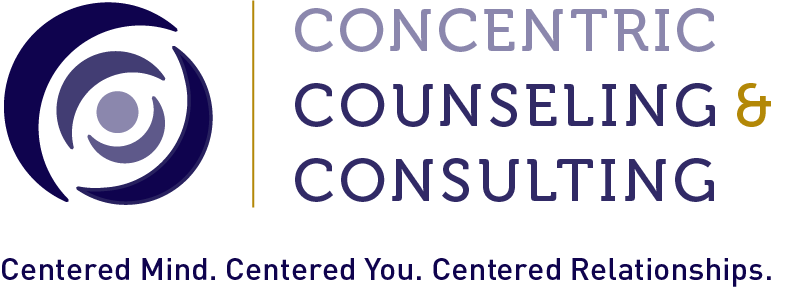The Value of Vulnerability
/By Concentric Counselor Christian Younginer, LPC, NCC
Life XXXV by Emily Dickinson
I CAN wade grief,
Whole pools of it,—
I ’m used to that.
But the least push of joy
Breaks up my feet, 5
And I tip—drunken.
Let no pebble smile,
’T was the new liquor,—
That was all!
Power is only pain, 10
Stranded, through discipline,
Till weights will hang.
Give balm to giants,
And they ’ll wilt, like men.
Give Himmaleh,— 15
They ’ll carry him!
Emily Dickinson’s word choice in the first line sticks with me- she can “wade” grief. She can trudge through the thick, tarry mire of sadness, pain, loss, and sorrow. It really feels like that, doesn’t it? This viscous bog of grief, she’s “used to that”. It’s familiar for her. But joy is foreign.
Although she can bear the pain of life, let life surprise her with joy and she will stumble, drunkenly. This voices a common human experience: Let something test our resolve, and we will meet that challenge. But let us be vulnerable, and we will dissolve.
It is easier to harden, than to soften. Give comfort and love to giants, and they will “wilt” into ordinary men, but ask them to carry mountains (‘Himmaleh’ is the archaic form of ‘the Himalayas’), and they will offer up themselves.
This brings us to the question of this post: How does a person allow themselves to be vulnerable, without wilting? How do they remain resilient when life gets hard, without hardening themselves?
What is vulnerability?
The insightful Brené Brown defines vulnerability as both “the birthplace of love, belonging, joy, courage, empathy and creativity”, but also as “uncertainty, risk and emotional exposure” (Daring Greatly). So, our options are: recoil at the latter and tell ourselves we don’t need the former OR accept the latter because we accept that we need the former.
There were times in my life where I clung to the idea that ‘ I don’t need others’- to avoid feeling exposed. That idea eventually spoiled, and I was faced with the reality that I DO need others. While I was aware of the fact, I had not yet accepted it. It was not until I accepted that I need others that my journey towards understanding vulnerability began.
Being vulnerable feels like the difference between writing in the 3rd person and 1st person. It is keeping others at a distance, to avoid the pain of feeling exposed- of not being accepted. If you notice, I switched from using “they” and “them” to “I” and “we”. As I wrote, I noticed feeling exposed, but I also noticed feeling satisfied with my self-awareness and honesty. That is, I felt joy in sharing this part of myself so that it might be of help to someone. It is this ‘trade-off’ that I believe Brené Brown is describing. If we can be ok with feeling a little exposed, we can receive wonderful gifts of acceptance, approval, validation, and love.
The Alternative.
In my pursuit of understanding vulnerability, I came to a choice. Would I rather feel uncomfortable or alone? My choice to embrace vulnerability and accept the possible “emotional exposure”, speaks to not only my desire for connection with others, but to the horror of the alternative: feeling alone. Jumping from a burning building does not mean that jumping is not scary, rather the alternative is too horrifying to consider.
Resilience.
What I am suggesting almost seems oxymoronic: Become vulnerable to become stronger. Invulnerability is not a superpower. Unless Superman exists and no one told me. Rather, accepting that we need others is the true superpower. One powerful result of letting ourselves connect is resilience. That is, if we temper ourselves in the furnace of vulnerability, we become stronger than we were. This is possible due to what Brené Brown references as the gifts of vulnerability: love, belonging, joy, courage, and empathy. Having these in our arsenal make us stronger humans, less prone to burnout and emotional distress.
Let us learn to enjoy the intoxicating effects of joy and not let it cause us to stumble. Carry the mountain if asked, because you are strong enough to shoulder it. But also do not wilt at receiving comfort or help. If we accept that we not only need others for support, but also that they have gifts to offer us, we become stronger. More resilient to carry the mountains when we need to and more courageous to be vulnerable when we just can’t carry anything else. It is the courage and strength to say: “ I’m not ok right now. But I will be.”

